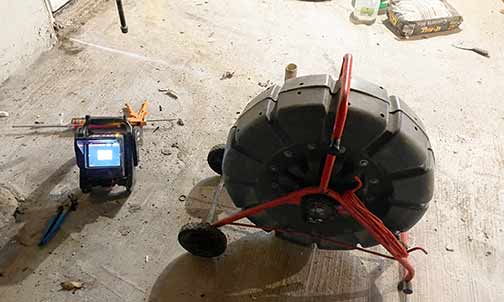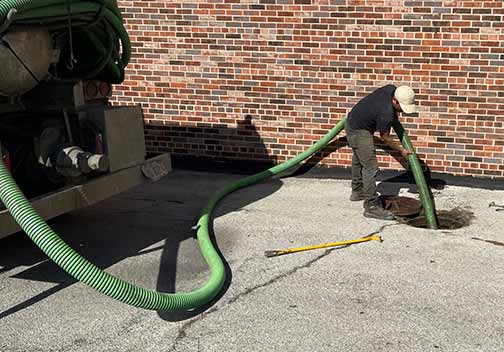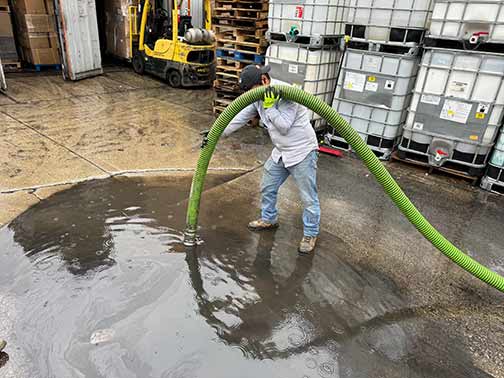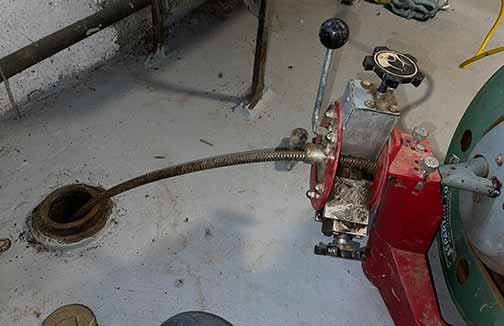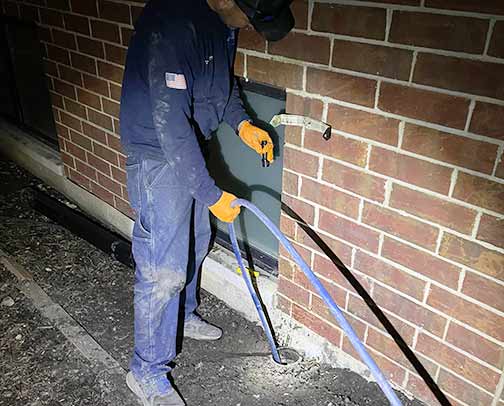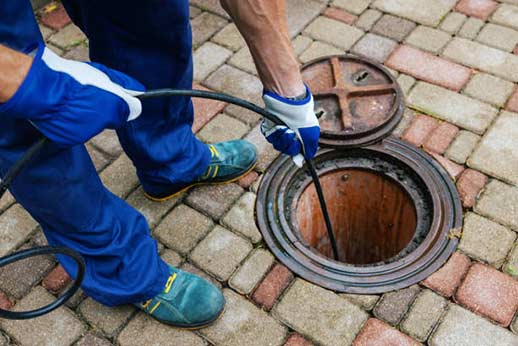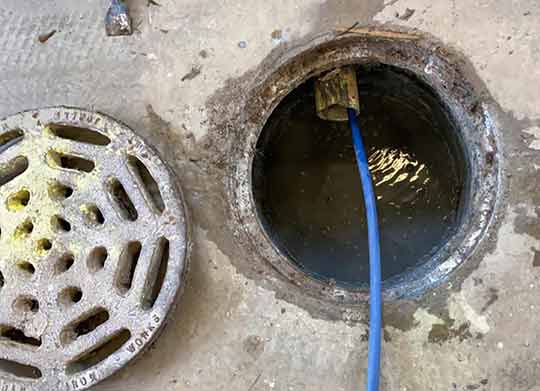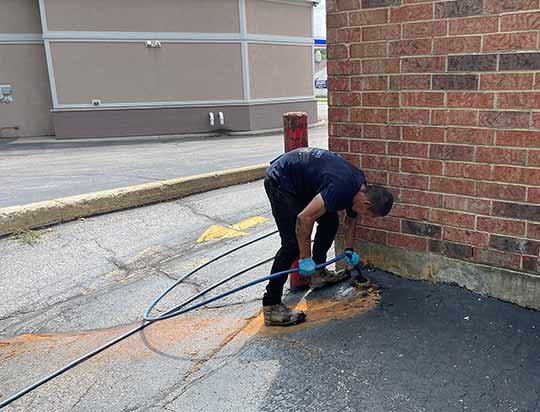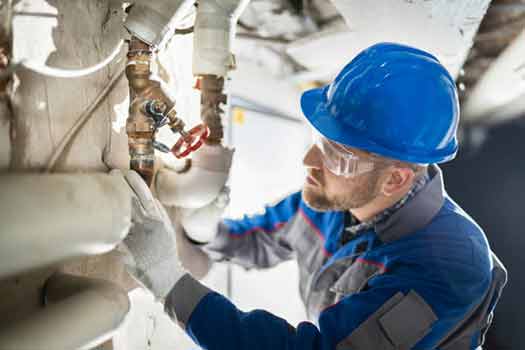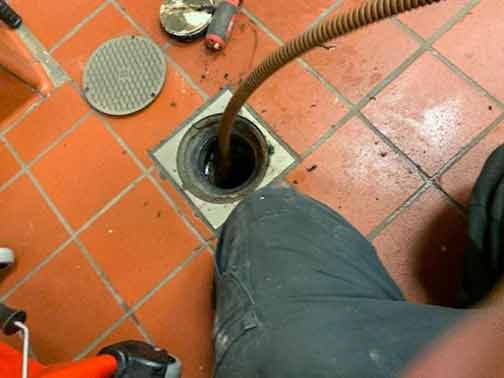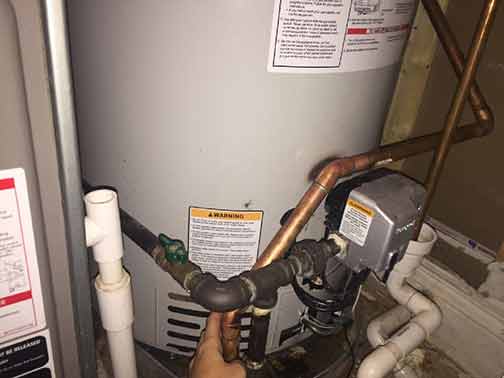
Winter months bring unique challenges for commercial establishments, and one of the most critical yet often overlooked aspects is the maintenance of drainage systems. The cold weather can wreak havoc on drains, leading to blockages, backups, and even severe damage. Therefore, understanding the importance of commercial drain cleaning during winter is essential to prevent costly damages and ensure smooth operations.
Preventing Costly Damages with Regular Drain Maintenance
Regular drain maintenance is crucial in preventing costly damages that can arise from neglected drainage systems. During winter, the risk of frozen pipes and blockages increases significantly. When water freezes, it expands, which can cause pipes to crack or burst. This can lead to extensive water damage, requiring expensive repairs. By scheduling regular drain cleaning, businesses can mitigate these risks and avoid unexpected expenses.
Moreover, neglected drainage systems can lead to structural damage to commercial properties. Water seepage from burst pipes can weaken the foundation and walls, compromising the integrity of the building. This not only poses safety risks but also results in costly repairs and potential legal liabilities. Regular drain maintenance ensures that drainage systems function optimally, reducing the likelihood of such damages.
In addition to preventing physical damage, regular drain maintenance helps to avoid health hazards. Stagnant water from blocked drains can become a breeding ground for bacteria and mold, posing health risks to employees and customers. By keeping drains clean and clear, businesses can maintain a healthy and safe environment.
Ensuring Smooth Operations in Commercial Establishments
For commercial establishments, smooth operations are vital to maintaining productivity and customer satisfaction. Blocked or slow drains can disrupt daily activities, leading to downtime and loss of revenue. In restaurants, for example, a clogged drain can halt kitchen operations, affecting service and customer experience. Regular drain cleaning ensures that the drainage system functions efficiently, minimizing disruptions and maintaining the flow of operations.
In office buildings, blocked drains can cause restroom facilities to become unusable, creating inconvenience for employees and visitors. This can lead to decreased productivity and a negative impression on clients and partners. Regular drain cleaning helps to prevent such issues, ensuring that facilities remain functional and accessible.
For retail establishments, maintaining smooth operations is essential to providing a positive shopping experience. Blocked drains can lead to unpleasant odors and unsanitary conditions, deterring customers and affecting sales. By prioritizing drain maintenance, businesses can create a welcoming and hygienic environment for shoppers.
Addressing Common Winter Drainage Issues
Winter brings specific drainage issues that require attention. One common problem is the accumulation of grease and debris in drains. As temperatures drop, grease can solidify, creating blockages that impede water flow. Additionally, fallen leaves and other debris can accumulate in outdoor drains, leading to backups. Regular cleaning helps to remove these obstructions, preventing blockages and ensuring proper drainage.
Another common winter drainage issue is the formation of ice dams. Ice dams occur when snow on the roof melts and refreezes at the edges, blocking the flow of water. This can cause water to back up into the drainage system, leading to leaks and water damage. Regular drain cleaning and maintenance help to prevent ice dams by ensuring that gutters and downspouts are clear and functional.
Furthermore, the increased use of heating systems during winter can contribute to drainage issues. Heating systems generate condensation, which can accumulate in drains and cause blockages. Regular drain cleaning helps to manage this additional moisture, preventing backups and ensuring efficient drainage.
Utilizing Professional Drain Cleaning Services
While some businesses may attempt to handle drain cleaning in-house, utilizing professional services offers several advantages. Professional drain cleaners have the expertise and equipment to thoroughly clean and inspect drainage systems. They can identify potential issues before they become major problems, providing preventive maintenance that saves time and money in the long run. Moreover, professional services ensure compliance with health and safety regulations, which is particularly important for businesses in the food and hospitality industries.
Professional drain cleaning services use advanced techniques and tools to achieve optimal results. High-pressure water jetting, for example, can effectively remove stubborn blockages and thoroughly clean pipes. Video inspections allow professionals to camera inspect the inside of sewer pipes, identifying hidden issues that may not be visible from the outside. These technologies enhance the effectiveness of drain cleaning, ensuring that drainage systems remain in optimal condition.
Additionally, professional drain cleaners provide valuable expertise and advice on maintaining drainage systems. They can recommend preventive measures and best practices to help businesses avoid future issues. By leveraging the knowledge and experience of professionals, businesses can ensure the long-term health of their drainage systems.

Video inspections allow professionals to camera inspect the inside of sewer pipes, identifying hidden issues that may not be visible from the outside.
Implementing Preventive Measures for Winter Drain Maintenance
Implementing preventive measures is key to maintaining drainage systems during winter. Insulating pipes can help prevent freezing, while regular inspections can identify early signs of blockages or damage. Businesses should also educate staff on proper waste disposal practices to avoid introducing grease and debris into drains. By taking proactive steps, businesses can protect their drainage systems and avoid costly disruptions.
One effective preventive measure is the installation of drain covers and screens. These devices help to catch debris and prevent it from entering the drainage system, reducing the risk of blockages. Regularly cleaning and maintaining these covers and screens ensures that they remain effective in preventing debris accumulation.
Another preventive measure is the use of environmentally friendly drain cleaners. These products are designed to break down grease and organic matter without causing damage to pipes or the environment. Regular use of these cleaners helps to keep drains clear and free-flowing, reducing the risk of blockages.
Businesses should also consider implementing a regular drain maintenance schedule. This involves scheduling periodic drain cleaning and inspections to ensure that any potential issues are addressed promptly. By adhering to a maintenance schedule, businesses can proactively manage their drainage systems and prevent unexpected problems.
The Role of Technology in Modern Drain Cleaning
Advancements in technology have revolutionized drain cleaning, making it more efficient and effective. High-pressure water jetting, for instance, uses powerful streams of water to clear blockages and clean pipes thoroughly. Video inspection cameras allow professionals to inspect the inside of pipes, identifying issues that are not visible from the outside. These technologies enhance the effectiveness of drain cleaning, ensuring that drainage systems remain in optimal condition.
In addition to high-pressure water jetting services and video inspections, other technologies have also improved drain cleaning. For example, robotic drain cleaners can navigate through pipes and remove blockages with precision. These devices are particularly useful for cleaning hard-to-reach areas and complex drainage systems.
Smart sensors and monitoring systems have also become valuable tools in drain maintenance. These sensors can detect changes in water flow and pressure, alerting businesses to potential issues before they become major problems. By using smart technology, businesses can monitor their drainage systems in real-time and take proactive measures to address any concerns.
Furthermore, advancements in materials and coatings have improved the durability and performance of drainage systems. Modern pipes and fittings are designed to withstand harsh conditions and resist corrosion, reducing the risk of damage and blockages. By investing in high-quality materials, businesses can enhance the longevity and reliability of their drainage systems.
Understanding the Impact of Winter Weather on Drainage Systems
Winter weather can have a significant impact on drainage systems. Snow and ice can obstruct outdoor drains, while freezing temperatures can cause pipes to freeze and burst. Additionally, the increased use of heating systems can lead to higher levels of condensation, contributing to drainage issues. Understanding these impacts helps businesses to take appropriate measures to protect their drainage systems during winter.
One of the primary concerns during winter is the formation of ice within drainage systems. When temperatures drop, any water remaining in the pipes can freeze and expand, causing the pipes to crack or burst. This can lead to significant water damage and costly repairs. Insulating pipes and ensuring proper drainage can help prevent ice formation and protect the integrity of the drainage system.
Snow accumulation can also pose challenges for drainage systems. When snow melts, the resulting water needs to be efficiently drained to prevent flooding and water damage. However, if outdoor drains are blocked by snow and ice, the water may have nowhere to go, leading to backups and overflows. Regularly clearing snow and ice from drains and ensuring proper drainage pathways can help mitigate these issues.
Furthermore, winter weather can exacerbate existing drainage problems. For example, small cracks or leaks in pipes may worsen due to the expansion and contraction caused by temperature fluctuations. Regular inspections and timely repairs are essential to address these issues before they escalate into major problems.
Case Studies: The Consequences of Neglected Drain Maintenance
Case studies highlight the consequences of neglected drain maintenance. In one instance, a commercial building experienced severe flooding due to a blocked drain that had not been cleaned for several years. The resulting water damage required extensive repairs, leading to significant downtime and financial loss. Another case involved a restaurant that had to close temporarily due to a grease blockage in the kitchen drain. These examples underscore the importance of regular drain cleaning to prevent such incidents.
In another case, a hotel experienced a major plumbing issue during the peak winter season. The hotel’s drainage system had not been properly maintained, leading to a burst pipe and extensive water damage to several guest rooms. The hotel had to close a portion of its operations, resulting in lost revenue and negative reviews from affected guests. This incident highlights the critical importance of regular drain maintenance in preventing disruptions and maintaining customer satisfaction.
A retail store faced a similar issue when a blocked drain caused water to back up into the sales floor. The store had to close temporarily to address the water damage and clean up the affected area. The closure resulted in lost sales and inconvenience for customers. This case emphasizes the need for proactive drain maintenance to avoid unexpected disruptions and protect business operations.
These case studies demonstrate the significant impact that neglected drain maintenance can have on commercial establishments. By prioritizing regular drain cleaning and maintenance, businesses can prevent costly damages, avoid disruptions, and ensure smooth operations throughout the winter months.
Conclusion: The Critical Role of Commercial Drain Cleaning During Winter
In conclusion, commercial drain cleaning during winter is crucial to prevent costly damages and ensure smooth operations. Regular maintenance helps to address common winter drainage issues, while professional services provide the expertise and equipment needed for thorough cleaning. Implementing preventive measures and utilizing modern technology further enhances the effectiveness of drain maintenance. By prioritizing professional drain cleaning services, businesses can protect their operations and avoid unexpected disruptions during the winter months.
By understanding the unique challenges posed by winter weather and taking proactive steps to maintain drainage systems, businesses can safeguard their properties and operations. Regular drain cleaning, preventive measures, and the use of advanced technology all contribute to the efficient and reliable performance of drainage systems. Ultimately, investing in drain maintenance is a wise decision that pays off in the form of reduced risks, lower costs, and uninterrupted operations.

